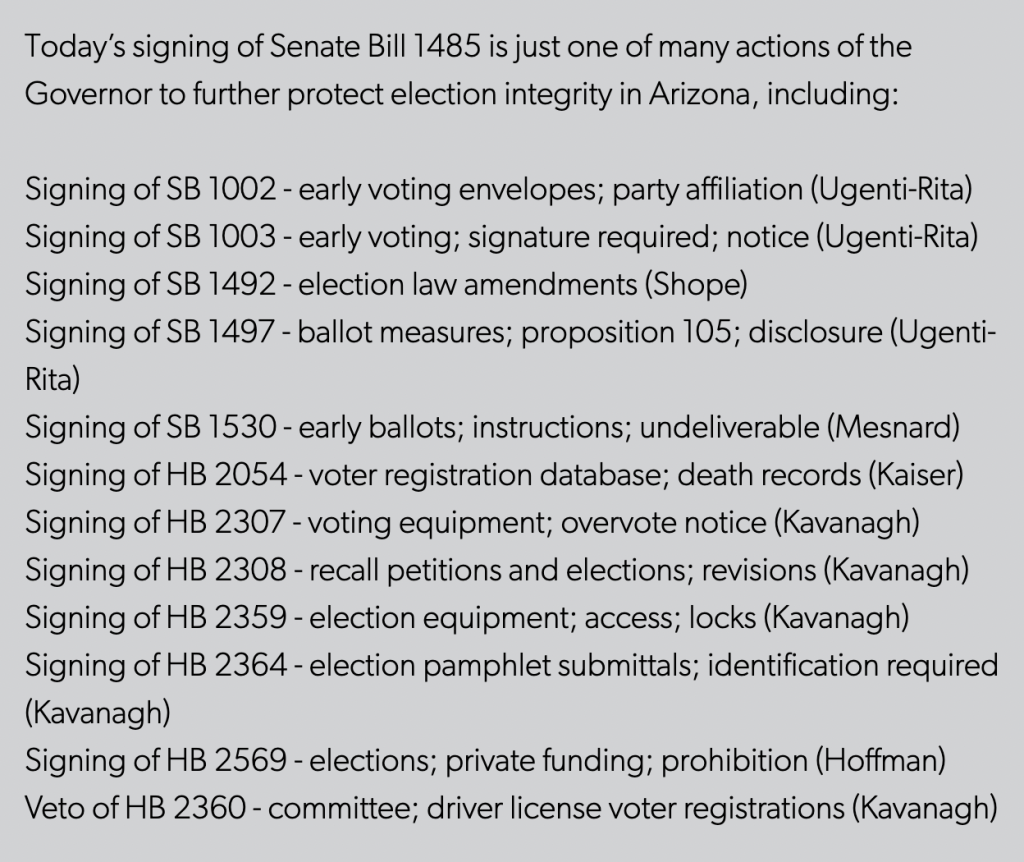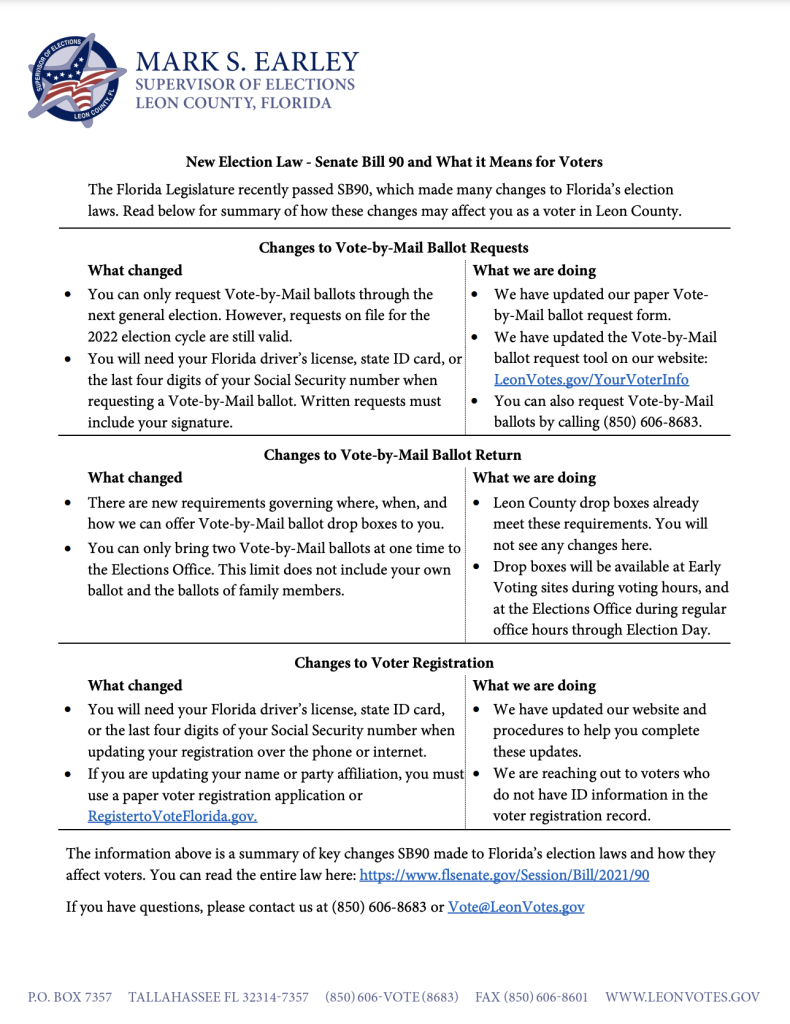Election integrity has been under scrutiny since the November 2020 general election, and many state legislatures have made attempts to beef up legislation to ensure greater confidence in future elections. Significant areas of focus for election integrity are accurate voter registration rolls, absentee ballots, election litigation, poll observation rules, funding for the management of elections, counting of the vote, election crimes, ballot harvesting/trafficking, drop boxes, voter id, voter registration timelines, and issues with voting assistance.
With these categories in mind, let's examine some key states that have addressed election integrity in 2021 and 2022. The discussion is not meant to be comprehensive of every state legislative action but is rather a snapshot of some of the resolutions and laws that stand out from various states. Swing states were examined as well as states that took a significant lead in the effort. Notably, of the five swing states examined, MI, PA, WI, AZ, and GA—Michigan, and Pennsylvania stand out as two states that have done very little legislatively to advance public trust in elections through legislation.
Highlights
Seven states that imposed new or stricter voter ID laws in 2021 are TX, IA, FL, MT, WY, GA, and AR. Fourteen states "created or expanded election-related crimes." Seven states "codified processes to ensure voters are notified of problems with their ballots and provided an opportunity to resolve the issue." Thirteen states put legislation in place to restrict mail-in voting. Five states tightened voter registration laws and requirements. Texas and Arizona are the two states that seem to show up consistently as making laws on election integrity. North Dakota, Arkansas, and Montana also made a good showing. Iowa appears to be the only state thus far to restrict early voting. Every Democrat opposed it.
Drop Boxes
Since drop boxes were such a point of contention for the 2020 election due to issues of ballot harvesting and, worse, ballot trafficking—they deserve special mention. Eleven states have introduced bills, according to the Voting Rights Lab. Bills have passed the first chamber in three states; GA, AZ, and ID. None have yet been signed into law.

 Voting Rights Lab Screenshot/Dropbox legislation
Voting Rights Lab Screenshot/Dropbox legislation
It looks as though South Carolina and Wisconsin are seriously considering passing bills that would impose restrictions or prohibit the use of ballot drop-off locations. South Carolina and Wisconsin have bills that have passed the second chamber in each state. Among other things, South Carolina's H 3444 prohibits the use of drop boxes. Wisconsin's S 939 seems to be silent on the legality of drop boxes. However, it does stipulate who may deliver ballots and how many can be delivered by a designated person.
"No person designated to deliver a ballot may deliver more than two ballots for any election for a person who is not a member of the person's immediate family. Under the bill, 'immediate family' means persons who are related as spouses, as siblings, as parent and child, or as a grandparent or grandchild."
The courts in Wisconsin have been duking it out, however. Currently, the Wisconsin Supreme Court "upholds a ballot drop box ban" for the April election.
Absentee Ballots
South Carolina and Georgia have bills that have passed 1st chamber regarding who can vote by absentee ballot. SC H 4919 "creates a two-week early voting period preceding every general election" and "updates the absentee ballot form and requires a driver's license or another form of identification be provided for a person to obtain and return an absentee ballot in person." The South Carolina bill also creates felonies for officials, election workers, or candidates who "intentionally publicly reports the results of an absentee ballot tabulation prior to the close of polls."
GA S 241, among other things, tightens absentee ballot rules and establishes a hotline so that "electors can file complaints and allegations of voter intimidation and illegal election activities."
Twelve states have introduced legislation on referencing absentee ballots. Those states which have introduced legislation are GA, SC, AZ, CO, MN, MA, MO, NJ, OH, OK, TN, PA.
Notable State Legislation
Texas
Texas has made some of the most substantive changes and/or amendments to its election laws to shore up election integrity. Some of the bills are listed below:
S.B 1111 addresses voter list maintenance and purges. For example, "a person may not establish residence for the purpose of influencing the outcome of a certain election." Extensive documentation of active residence must be provided. SB 1113 also addresses proper and timely maintenance of voter registration.
S.B. 7 was a priority Act for the GOP in Texas. It passed in final reading in May of 2021. The bill addresses election fraud, delineates criminal offenses and civil penalties with more precise language.
 TX SB 7/Election Fraud Bill
TX SB 7/Election Fraud Bill
As a side note, it is interesting to compare the original legislation with how those opposed to it see the bill, seen here from the left-leaning Voting Rights Lab:
 TX SB 7/Election Integrity Bill
TX SB 7/Election Integrity Bill
S.B. 10 would have upgraded penalties for election fraud from Class A misdemeanor to felony of the second degree, but it failed.
S.B. 1 passed in September and was a broad bill that made extensive changes to election procedures. The areas addressed in this bill were vote-by-mail, in-person voting, election crimes, voter registration, and election security. For example, it beefs up voter id requirements and creates felony crimes for election fraud in a number of areas, including mail-in ballots. It prohibits drive-through and outdoor voting, regardless of emergency orders. It also requires better documentation for those assisting others with voting and creates felony crimes for those not following the law. These are only a few of the provisions.
H.B. 3920 amends the Election Code to specify that a voter is eligible to vote early by mail due to confinement for childbirth if the voter is expecting to give birth within three weeks before or after election day. A lack of transportation does not qualify.
There were also bills to restrict contributions to officials involved in elections.
Arizona
The Arizona legislature gets points for being active when submitting and debating bills. In some cases, bills were passed and signed. In 2021, Gov. Ducey signed 13 bills addressing early voting, voter registration database issues, and private funding, among other issues. However, most of the bills signed were relatively modest steps toward election integrity.
 Arizona 2021 Election Integrity Bills
Arizona 2021 Election Integrity Bills
There are multiple bills on various important election integrity issues that have been introduced. Arizona SCR 1012 is a resolution called "The Arizonans for Voter ID Act "set to be put on the ballot to help tighten voter id requirements in the state.
Arizona legislative session dates are Jan. 10 through May 13, 2022. Bills are being debated in Arizona in 2022 too numerous to list or discuss here in various stages of consideration but can be searched by state and topic. They cover the entire gamut of election integrity concerns. Highlights are as follows: AZ H 2596 would allow the AZ Legislature the right to invalidate the results of any election. AZ S 1629 tightens language concerning the ability to audit and scrutinize elections and voter registration list maintenance.
Wisconsin
A key amendment currently considered in Wisconsin seeks to prevent the disaster that took place in five key Democratic strongholds in the state as a result of the Zuckerberg-Chan money. Evidence indicates that "contracts signed by officials in these cities critical to the Biden campaign agreed to target specific voter groups with special assistance and incentive to vote." The amendment being considered is WI SJR 101, and it will be put on the ballot for voters to weigh in.
Georgia
S 202 is a 98-page bill signed into law by Gov. Kemp in March of 2021 that significantly amended the Georgia Elections Code. The Republicans sponsored Election Integrity Act of 2021 was voted in along party lines. It called for changes to absentee voting, stricter ID requirements for absentee ballots, and no unsolicited ballots may be sent. Additionally, in reference to drop boxes:
"Secure absentee ballot drop boxes — which did not exist a year ago — are now officially part of state law, but not without some new changes. The law now requires all 159 counties to have at least one dropbox, caps the number of boxes at one per 100,000 active voters or one for every early voting site (whichever is smaller), and moves them inside early voting sites instead of outside on government property. Additionally, the drop boxes will only be accessible during early voting days and hours instead of 24/7."
The bill also expands "early voting access for most counties, adding an additional mandatory Saturday and formally codifying Sunday voting hours as optional." No mobile polls will be allowed "except during an emergency declared by the governor." There are also changes in vote-counting rules. Counting can start earlier, and "local officials are required to post and report the total number of ballots cast on election day, during early voting, via absentee voting and provisional ballots, all by 10:00 p.m. on election night, essentially providing the public with a denominator to understand the total possible votes out there as results trickle in."
Florida
S 90 was signed by Governor DeSantis on May 6, 2021. The law was a comprehensive revision of mail-in voting, voter registration rules, and ID requirements. It also limits the number of ballots delivered, who is designated to deliver them, and prohibits election officials from accepting private funds, etc.
 SB 90/Florida
SB 90/Florida
Governor DeSantis also signed a bill in early March, SB 524, that would enable the state to have a force "dedicated to election crimes and voter fraud." It is one of the first states to do so. The governor would oversee the office. The House passed the Republican-led bill on Mar. 9 after a 23-15 vote in the Florida Senate. The new election crimes office would have a budget of $3.7 million.


